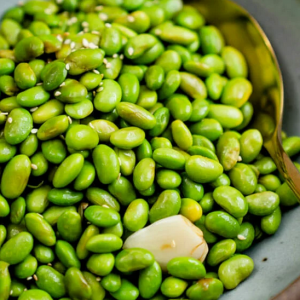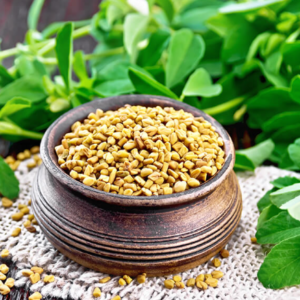A keto diet, also called the ketogenic diet, refers to a diet that is high in fats and low in carbs. It is often recommended for those interested in weight loss together with other health benefits. In this post, we have a complete guide to a ketogenic diet. Read on for more.
What is a Ketogenic Diet?
The keto diet is significantly low in carbs and high in fat. Often, such a dietary plan is meant to help people lose weight. Several scientific research studies have also shown that ketogenic diets may be beneficial in managing health conditions such as Alzheimer’s disease, epilepsy, diabetes, and certain types of cancer. It is worth noting that a ketogenic diet is closely related to the low carb diet and the Atkins diet.
How the Keto Diet Works
A ketogenic diet entails eating moderate amount of proteins, more fats, and very little to no carbohydrates. Reducing your consumption of carbohydrates and increasing your intake of fats while keeping the amount of proteins moderate is known to stimulate a metabolic state called ketosis in the body. In this type of metabolism, the body efficiently metabolizes more fat and less glucose for energy.
Quick Read: Health benefits of Ashwagandha
How keto Diet Improves your Health
Ketogenic diet improves your health in a number of ways. Most of these benefits come with the elevated fat metabolism associated with keto diet. Some of the common ones include:
Quick Read: Health benefits of collagen supplements
- Reduced insulin levels
- Increased insulin sensitivity
- Reduced blood sugar levels
- Increased levels of ketones
- Weight loss
For effective ketosis, your daily amount of carb intake should be limited to 20-50 grams. Instead, you should eat more fats, healthy oils, and proteins such as meat, fish, eggs, and nuts.
Pro Tip!!
Keep your protein intake in check while on a keto diet. That way, you avoid the risk of inducing gluconeogenesis, a metabolic state that involves converting proteins and other non-glucose subtrates to glucose.
Common Tests for Ketosis
There are 3 main tests for ketosis in the body. Your doctor may conduct any of them:
- Breath test
- Blood test
- Urine test
These tests help you establish the amount of ketones produced by the body. That way, your doctor can help you know when your body has entered a ketosis metabolic state and recommend the right dietary or pharmacological management options, if necessary.
Quick Read: Natural high collagen foods
TYpes of Ketosis Diets
There are essentially four main types of ketogenic diets. They include:
1. High Protein Keto Diet (HPKD)
This keto diet is high in fat (60%), protein (30%), and carbs (5%). It’s a lot like the standard keto diet, but the standard keto diet has a bit less protein.
2. Targeted Keto Diet (TKD)
A type of keto diet that allows one to consume more carbohydrates during workouts. So, when you work out, your body can easily get the carbs it needs to meet its high energy needs. Post workout, the individual reverts to their usual keto diet.
3. Standard Keto Diet (SKD)
A diet with a low carbohydrate content (10%), a high fat content (70%), and a moderate protein content (20%). It is a lot like the HPKD, except that it has less protein than the HPKD.
4. Cyclical Keto Diet (CKD)
A diet with periods of higher carb intake followed by extended periods of ketogenic feeding. For instance, you can have 2 consecutive days of high carbohydrate intake followed by up to 5 days of ketogenic diet
Of the four types, the SKD and HPKD are the most common and well-researched methods. CKD and TKD are rare and often used by athletes and bodybuilders only.
Quick Read: Health benefits of Edamame beans
Health Benefits of Ketogenic Diet
A ketogenic diet has been associated with a number of health benefits. Some of these include:
a). Keto Diet and Weight Loss
A recent research study has shown that a ketogenic diet is very effective in weight loss without ever worrying about tracking your calories. And it is comparatively more effective than a low-fat diet when it comes to weight loss. Some studies have also established that keto diets reduce triglyceride levels in the body.
b). Keto Diet and Diabetes Mellitus
A ketogenic diet can help cut down on the things that make you more likely to get diabetes. Therefore, it leads to improved insulin secretion. Similarly, it causes body cells to be more sensitive to insulin. It’s also worth noting that the diet can also help reduce levels of hemoglobin A1C, a long-term blood sugar management measure.
Quick Read: Keto Diet Beginner Guide
c). Ketogenic Diet and Cancer Management
Some research studies suggest that keto diets might be able to help slow the growth of tumors. However, the findings on this are not yet conclusive.
d). Keto Diet and Heart Conditions
High blood pressure, HDL cholesterol, and blood sugar are all risk factors that have been shown to reduce significantly in persons with known heart conditions and who are on a keto diet.
e). Keto Diet and Alzheimer’s Disease
Some research studies have shown that a keto diet can improve the symptoms of Alzheimer’s disease, not to mention the disease progression process.
f). Keto Diet and Epilepsy
According to a recent study, epileptic children who are on a ketogenic diet have far fewer episodes of seizures. However, how the diet leads to a reduction in seizure episodes is not very clear. Further research is still ongoing in this field.
g). Keto Diet and Parkinson’s Disease
A study that’s not very conclusive has shown that Parkinson’s disease symptoms get better when people follow a keto diet. Further study is necessary in this area.
Pro Tip!!
Athletes and Bodybuilders are usually advised to avoid ketogenic diet because it lacks some essential nutrients. The diet is usually purposely meant for those keen on reducing their weight or managing their Diabetes Mellitus type 2.
Foods to Eat while on Keto Diet
Considering that a keto diet is low on carbs and high on fats and proteins, there are certain foods that are recommended for this type of diet. Some of these include:
- Meat, fatty fish, nuts & seeds, butter & cream, cheese, avocado oil, virgin oil, green veggies, peppers, tomatoes, salt, herbs, eggs, mozzarella, cream, goat cheese, whole avocados
Foods to Avoid while on keto Diet
Just like there are foods that are recommended, there is another category of foods to avoid while on keto. Some of these include:
- Mayonnaise & unhealthy processed vegetable oils, alcohol, sugar free diet foods, condiments such as ketchup, teriyaki, honey mustard, beans & related legumes, potatoes, sodas, smoothies, pasta, cake, and sugary fruits.
Wrap Up
If you are interested in losing weight, a ketogenic diet is one non-pharmacological method you might wish to give a try. It has also been said to make the symptoms of long-term health problems like diabetes mellitus, Alzheimer’s disease, and Parkinson’s disease better. That being said, consider talking to a qualified nutritionist to advise you on the best keto diet plan.



























